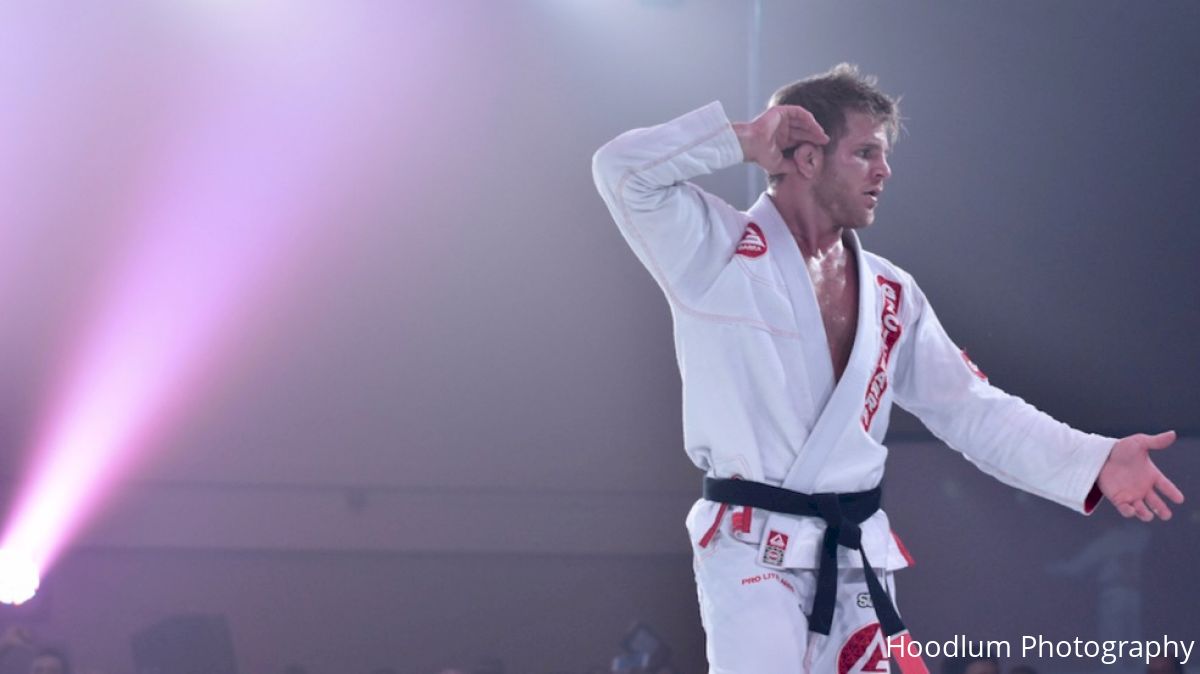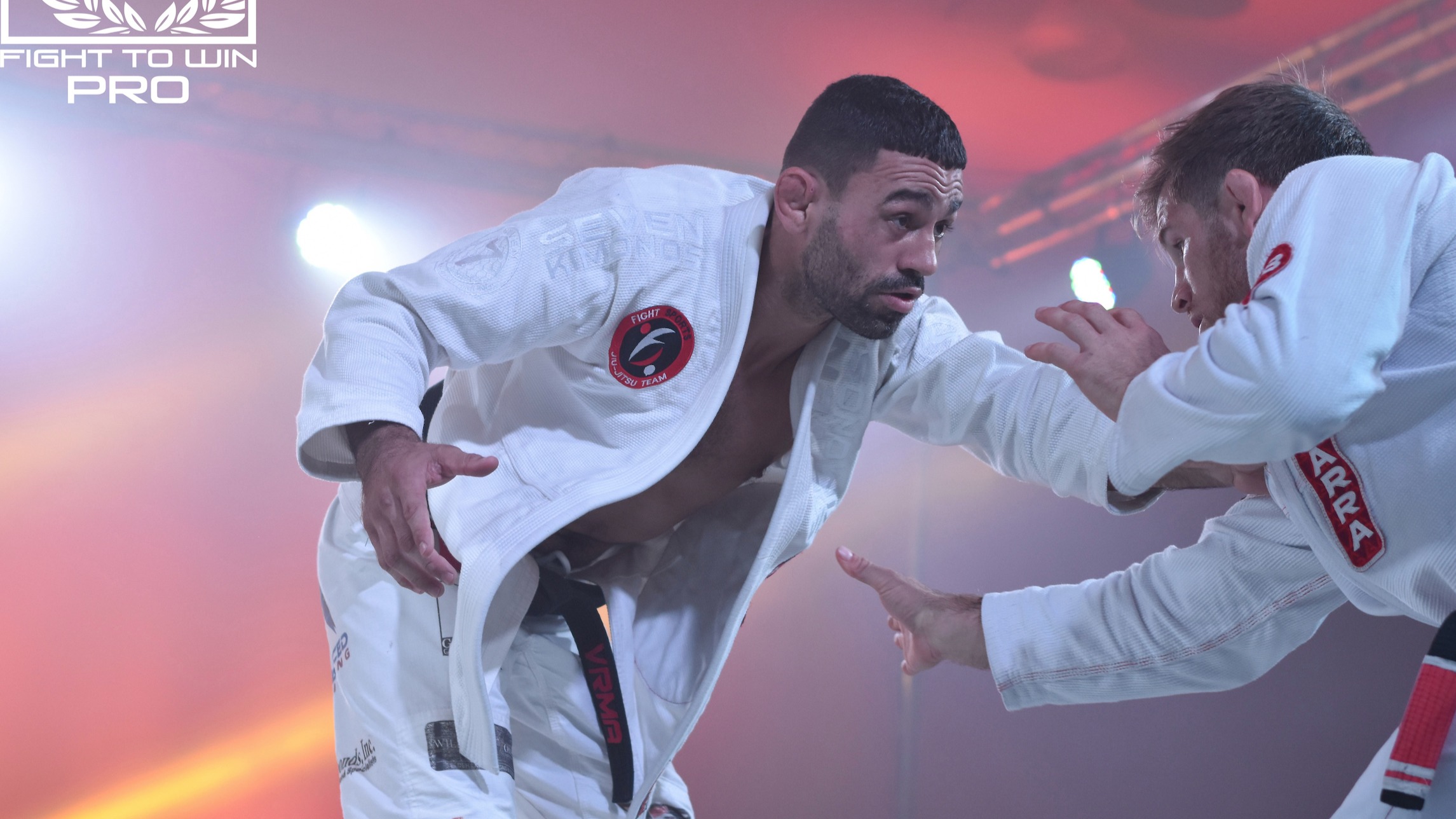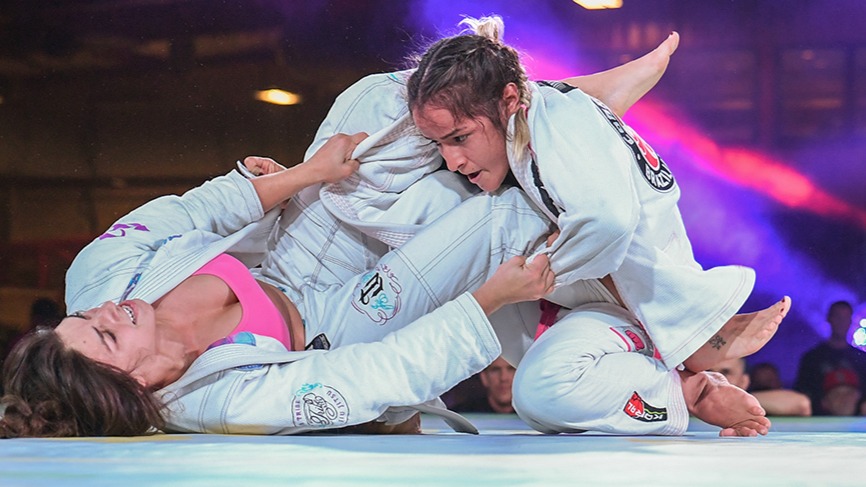The Pros and Cons of Sportsmanship in Professional Grappling
The Pros and Cons of Sportsmanship in Professional Grappling
There has been a lot of talk about what is or isn't good for the sport of jiu-jitsu insofar as sportsmanship goes. Jiu-jitsu as a spectator sport is fairly new, and like many other sports has produced its "good" and "bad" guys.

There has been a lot of talk recently about sportsmanship in jiu-jitsu. While jiu-jitsu is fairly new as a spectator sport, it still produces its share "good" and "bad" guys. Is there a line that needs to be drawn? And is there a difference between hyping a match to make it entertaining and displaying poor sportsmanship and conduct?
Earlier this month, there was an incident at a Fight To Win Pro event in which Vagner Rocha kicked AJ Agazarm off of the stage. Similar antics have occurred between other competitors, ranging from social media banter to displays of aggression during weigh-ins to the occasional outburst during an actual match. Is this problematic?
A disciplined athlete should inherently and innately respect other disciplined athletes, even ones they are about to compete against or just competed against. Respect is crucial, especially in a sport in which disrespect at the wrong moment could result in permanent injury to a competitor.
There is also a certain element of tradition in jiu-jitsu. The roots of the art are in the Japanese arts of antiquity, and most of these had strict codes of honor and respect, referred to by some as "bushido." Because of the power that martial arts bestows upon its practitioners, these codes must be established and adhered to in order for any martial art to continue thriving and attracting new practitioners.
Sportsmanship is important, because it provides a good example for younger athletes. It fosters a greater degree of safety in an already dangerous art, and it is an expression of the code of conduct that many of us have adopted. What are some reasons to break away from sportsmanship? When is displaying unsportsmanlike conduct justifiable?

A prime example that comes to mind is Gordon Ryan, who has taken to social media to provoke and in some cases taunt future (or desired) opponents. Ryan's conduct on the day of a tournament tends to be perfectly civil, but his posts on social media can easily be construed as poor sportsmanship.
Another example is Agazarm, who has in some ways brought out the worst in his opponents. His matches often devolve into trash talking and in some cases shoving, slapping, or kicking. People who don't like Agazarm's conduct watch him, because they want to see him lose.
In many sports, particularly combat sports, there exists the concept of the "heel." These are fighters who evoke anger or disgust in the viewers, which leads to people wanting to watch them lose. Heels are important, because they generate emotional attachment to the sport. As of late in the UFC, heels have been all the rage with Ronda Rousey, Conor McGregor, and Michael Bisping all embracing the role.
As competitive jiu-jitsu becomes more of a spectator sport, the existence of heels will rely upon the expression of poor sportsmanship. This can be as mild as taunting and posting memes on social media, or it can be as extreme as the incident in the Agazarm-Rocha match.
A major risk of allowing heels to participate in mainstream events is that it may send the wrong message to would-be jiu jitsu practitioners. The uninitiated may believe that what they are witnessing is considered appropriate behavior throughout the sport, and that may turn them off.
This also gives way to potentially dangerous situations. When the culture allows athletes to behave poorly, they may continue to push those boundaries into undesired territory. For example, if someone had been seriously injured as a result of Rocha kicking Agazarm, that would have damaged both the event as well as the perception of the sport.

In a recent interview with Bear Quitugua of Shoyoroll, Gui Mendes was very clear on his thoughts of internet call outs:
Earlier this month, there was an incident at a Fight To Win Pro event in which Vagner Rocha kicked AJ Agazarm off of the stage. Similar antics have occurred between other competitors, ranging from social media banter to displays of aggression during weigh-ins to the occasional outburst during an actual match. Is this problematic?
The Importance and Value of Sportsmanship
Sportsmanship is a way to show respect for your opponent, your instructors, and the art itself. I have always believed that win, lose, or draw it is my responsibility to show my opponent respect before and after a match. During the match, the gloves come off, and I will use all the tools at my disposal to win, including trying to break the other person psychologically.A disciplined athlete should inherently and innately respect other disciplined athletes, even ones they are about to compete against or just competed against. Respect is crucial, especially in a sport in which disrespect at the wrong moment could result in permanent injury to a competitor.
There is also a certain element of tradition in jiu-jitsu. The roots of the art are in the Japanese arts of antiquity, and most of these had strict codes of honor and respect, referred to by some as "bushido." Because of the power that martial arts bestows upon its practitioners, these codes must be established and adhered to in order for any martial art to continue thriving and attracting new practitioners.
Sportsmanship is important, because it provides a good example for younger athletes. It fosters a greater degree of safety in an already dangerous art, and it is an expression of the code of conduct that many of us have adopted. What are some reasons to break away from sportsmanship? When is displaying unsportsmanlike conduct justifiable?

Is Bad Sportsmanship Good for the Sport?
Good sportsmanship has obvious merits and reasons. What about bad sportsmanship? Are there times in which bad sportsmanship is good for the sport? Does it up the entertainment value? Does it make people desire specific matchups?A prime example that comes to mind is Gordon Ryan, who has taken to social media to provoke and in some cases taunt future (or desired) opponents. Ryan's conduct on the day of a tournament tends to be perfectly civil, but his posts on social media can easily be construed as poor sportsmanship.
Another example is Agazarm, who has in some ways brought out the worst in his opponents. His matches often devolve into trash talking and in some cases shoving, slapping, or kicking. People who don't like Agazarm's conduct watch him, because they want to see him lose.
In many sports, particularly combat sports, there exists the concept of the "heel." These are fighters who evoke anger or disgust in the viewers, which leads to people wanting to watch them lose. Heels are important, because they generate emotional attachment to the sport. As of late in the UFC, heels have been all the rage with Ronda Rousey, Conor McGregor, and Michael Bisping all embracing the role.
As competitive jiu-jitsu becomes more of a spectator sport, the existence of heels will rely upon the expression of poor sportsmanship. This can be as mild as taunting and posting memes on social media, or it can be as extreme as the incident in the Agazarm-Rocha match.
A major risk of allowing heels to participate in mainstream events is that it may send the wrong message to would-be jiu jitsu practitioners. The uninitiated may believe that what they are witnessing is considered appropriate behavior throughout the sport, and that may turn them off.
This also gives way to potentially dangerous situations. When the culture allows athletes to behave poorly, they may continue to push those boundaries into undesired territory. For example, if someone had been seriously injured as a result of Rocha kicking Agazarm, that would have damaged both the event as well as the perception of the sport.

Professionals Who Keep it Pro
On the flipside, there are athletes who have huge fan bases who never trash talk anyone. Three great examples are Mackenzie Dern and the Mendes Brothers. All three of these people have extremely heated rivalries (recently Mackenzie vs. Talita Alencar and Rafa Mendes' classic clashes with Rubens "Cobrinha" Charles).In a recent interview with Bear Quitugua of Shoyoroll, Gui Mendes was very clear on his thoughts of internet call outs:
There are no shortcuts. This is not boxing or MMA. You are not going to become a millionaire by promoting your fight. Do it right, win, then win again, and then win again. Make people respect you because of your history in the sport. We don't fight for a promotion, and we don't get pay-per-view money. If you put all your hopes of succeeding on making 10K in three events per year, then you have really small goals.So what is the right answer? Should great lengths be taken to ensure that the gentle art remains gentle? Or does the potential entertainment value of poor sportsmanship make allowing it worthwhile?